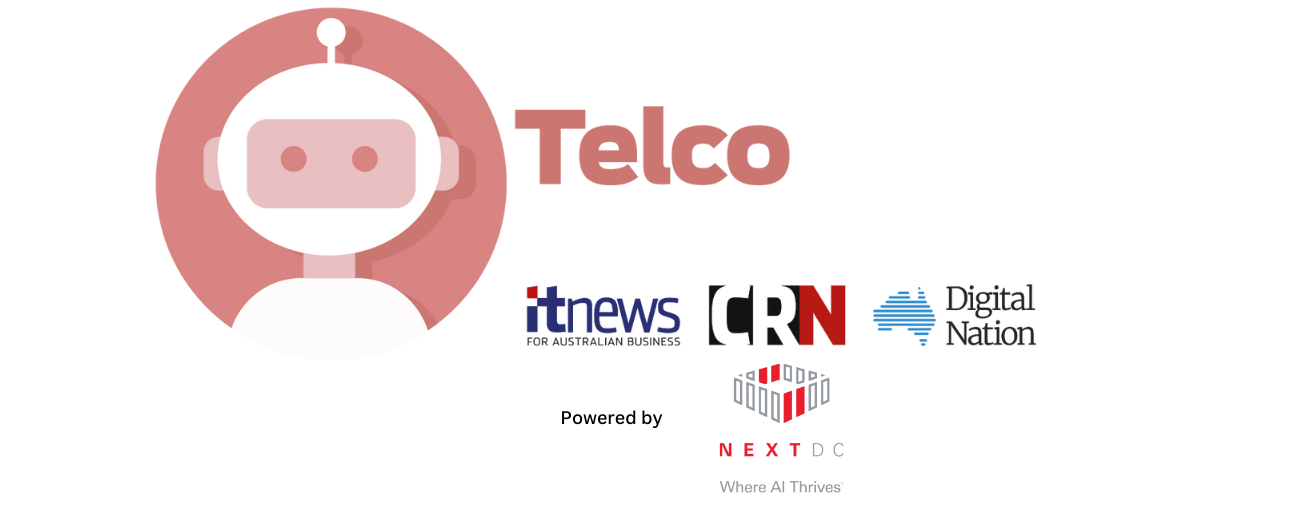
It will be some years before the winners and losers of the current AI revolution are known, but in the meantime, someone needs to be carrying all that data, and that is good news right now for the telecommunications sector.
It is not just on raw data transfer where AI will pay dividends for telcos. The advantages that AI brings to telcos are numerous, from the ability to improve and personalise customer service through to specific capabilities to fine-tune infrastructure performance and reduce costs.
According to Grand View Research, the global market for AI in telecommunications was valued at US$1.45 billion ($2.16 billion) in 2022 and is set to grow by 28.2 percent annually until 2030, making it one of the fastest growing industries for the use of AI.

That investment may become a critical differentiator for those carriers that thrive in the future, especially if AI’s promise of improving core services holds true.
Telecommunications carriers have already witnessed a massive increase in data volumes thanks to the rapid growth of over-the-top streaming services, which Canstar reports use between 300MB and 7GB per hour depending on the application and the selected video quality.
This demand is only likely to increase as AI use also rises – and especially if consumers rapidly engage with many of the AI-powered video creation services that now exist.
Creating the neural pathways
The growth opportunity presented by AI is clearly in the sights of the international telecommunications company Vocus and its chief information officer Rob Ison.
"AI demands really high capacity, high security, and reliable infrastructure,” said Ison.

“For the past four years we have invested heavily in terrestrial and subsea networks. There is a huge amount of work that we are doing from an infrastructure perspective, because we are trying to position and work with the government to enable Australia to become an AI hub.”
Vocus also launched a program of work to determine where AI can uplift its own capabilities, starting with the experience that it provides via its contact centres.
One project saw Vocus trial the deployment of large language models (LLMs) to assess the purpose of customer calls, which has led to calls being answered around 30 percent faster. Another trial has used AI to analyse the call content to better understand the quality of services that agents provide.
“Traditional technologies haven't coped with the volume, whereas AI is able to extract sentiments and gives us prioritisations that we can then invest in from a call-deflection point-of-view.” - Rob Ison, chief information officer, Vocus
A specialised 'Copilot'
Vocus is an early adopter of Microsoft Copilot and has subsequently deployed its own Advanced Vocus Assistant (AVA), which Ison described as a Copilot that operates off a curated Vocus knowledge base.
AVA’s initial deployment is designed to help internal staff resolve questions relating to policy.
“We have a lot of policy questions, and it can be hard to get a good knowledge management structure, so what AVA does is curate all of that knowledge and interact with users on specific questions,” Ison said.
"Now we can democratise that Vocus knowledge across a whole bunch of Vocus individuals, the quantified benefit is that it is 20 times more cost-effective than deploying the Copilot licence, and better suited to the casual user.”

Another area of focus is on Vocus’ cyber defence programs. Ison said Vocus has been usingmachine learning to sift through security anomalies and act as required at increasing speed, without creating a blowout in the number of people needed in its security operation centres.
“We have grown to multiple tens of billions of security events per month that we are analysing, and we couldn't do that without AI,” Ison said.
“We are very bullish on that. The threat actors are not going to be sitting back and waiting for that technology to mature – they are going to be using that in more and more sophisticated attacks – so we are matching that and will continue to bring it to them as well."
AI for everyone
One of the key questions hanging over the adoption of AI within Australian business is whether employers will be able to find the skills they need to design, develop, and consume AI systems.
With few skills available in the market, Optus is upskilling its own workforce in AI, with its vice president for digital channels and customer success strategy Samantha Lawson describing how multiple teams are now incorporating AI-based tools into their day-to-day work.

Lawson said almost 500 developers are using GitHub Copilot, with more than 90 percent reporting significant increases in productivity and faster completion of tasks. Copilots are also used by developers to ensure code quality, enabling Optus to deliver improvements or new experiences for customers with speed and at scale.
“We use AI to help make life simpler for our customers and employees, and believe it has significant potential to continue to elevate the experiences we offer Australians,” Lawson said.
Optus’ application of AI incorporates tasks ranging from understanding the root cause of customer issues and proactively resolving them through to automating customer queries, summarising and categorising conversations, and understanding the customer experience of the network and informing investment decisions.
She said the AI-powered Optus Assistant can handle everything from billing enquiries to checking the status of the Optus network and has resolved 6.2 million customer queries since 2020.
In 2021 Optus launched a world-first conversation summarisation project, in partnership with Google in 2021, which summarises customer interactions for frontline teams, automates the note taking process, and allows experts to spend more time connecting with our customers.
“Our experts also have more information about the customer’s needs when they connect, and we can draw insights from the trends in what our customers are telling us to proactively resolve issues.” - Samantha Lawson, vice president for digital channels and customer success strategy, Optus
AI in the core
With demands on carriers increasing daily, the real test of AI’s capabilities may come through the contribution that it can make to managing that traffic growth.
Aussie Broadband’s chief strategy officer Jonathan Prosser said his company has been using AI to help with this task for some years, including the augmentation of its network management and traffic analytics through the application of machine learning and reinforcement for years.
“Some of those tools have been created in-house, like our CVC [connectivity virtual circuit] Bot, which automatically monitors and purchases additional CVC bandwidth to ensure a quality customer experience during peak hours and bandwidth highs,” Prosser said.

Another project to benefit from AI is Aussie Broadband’s automated Fault Detector, which identifies and proactively resolves faults on a user's connection without them even having to make a phone call.
“This is something that could be even better in the future with the predictive learning and reinforcement that's possible with machine learning,” Prosser said, adding that other parts of the business will see be seeing similar benefits.
“One idea in-flight is to create generative AI customer personas – an AI-generated avatar, if you will – that we could train and feed data into that would then help inform our product design and marketing,” Prosser said.
“By building personas informed by anonymised behaviours and traffic profiles, we can create an effective reflection of different types of customers that would help reduce the onerous cost associated with third-party insights and research.
“We're also in the early stages of exploring other potential AI avenues as well, including AI-assisted or enabled code generation to improve speed to market, and exploring more advanced ways of embedding AI into our infrastructure to better handle fault management, traffic flows and traffic optimisation." - Jonathan Prosser, chief strategy officer, Aussie Broadband
Future possibilities
As with many emerging technologies, Prosser thinks it will be some time before the hype around AI solidifies into genuine returns, with most of the uses of AI in the telco sector likely to be extensions of what many companies already do with their data analysis and network management.
“We think many of the short-term wins will come from assistant-type roles, such as summarising technical manuals or large chunks of documentation, or Copilot helping a developer write blocks of code, and other areas where AI can augment what humans already do,” Prosser said.
Telco State of AI Champion

State of AI Champions
We are proud to present the State of AI Report Champions, and we will showcase the work they are doing in the coming days.
.png)
















